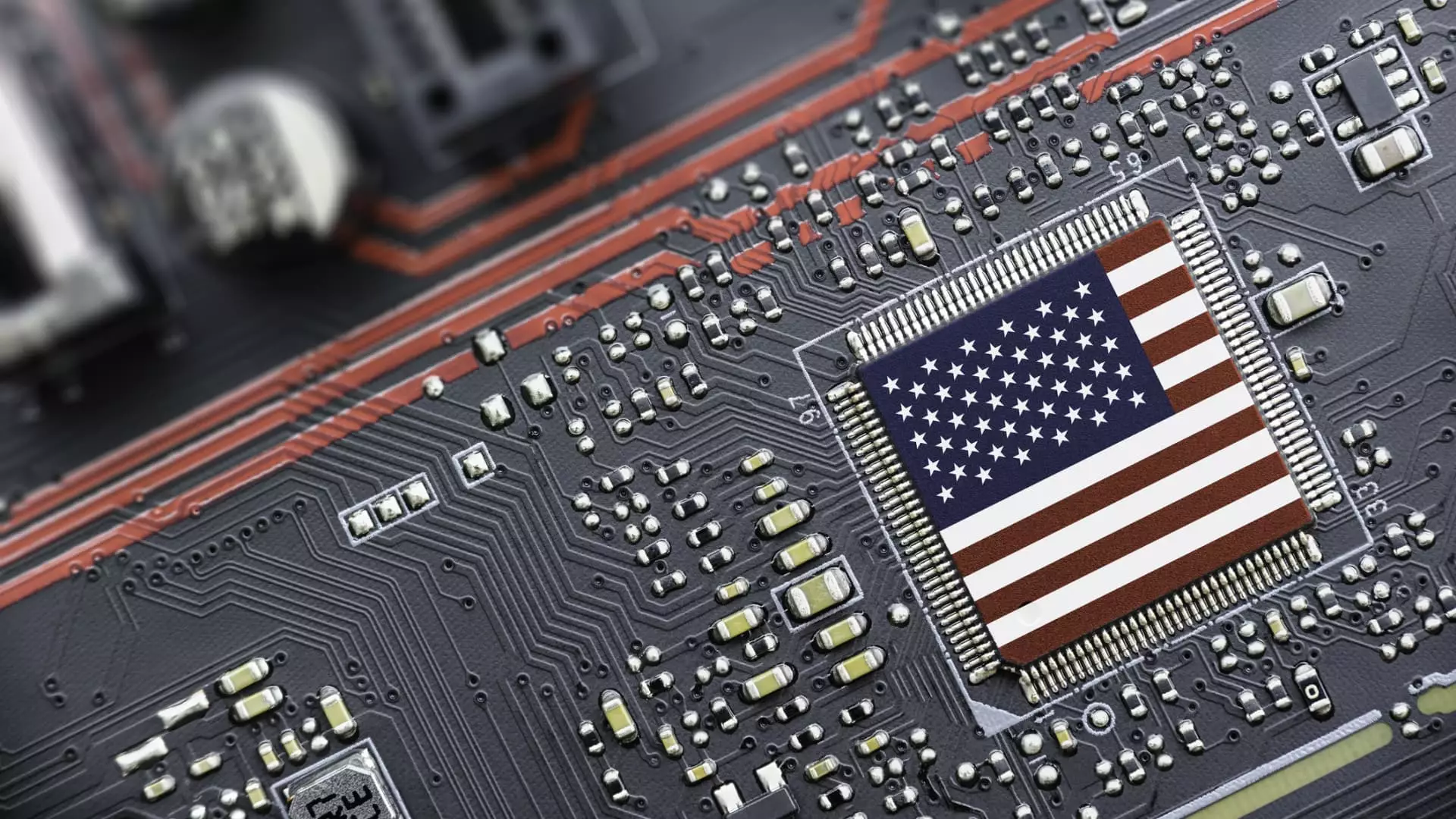In a move that carries significant weight for both the technology sector and national security, the U.S. Commerce Department has initiated a national security investigation into semiconductor technology imports. Announced via a recent Federal Register notice, this inquiry is a reaction to growing concerns about the nation’s reliance on foreign semiconductor sources. Given the pivotal role these chips play in modern electronics—from smartphones to national defense systems—the investigation opens up a profound dialogue on self-sufficiency and security in an increasingly interconnected global economy.
This investigation fits into a broader narrative where leaders have been anxious about the country’s dependency on semiconductor imports from nations like Taiwan, South Korea, and the Netherlands. With the threat of a global trade war simmering under the surface, the decision to probe into chip imports suggests a direct correlation between economic independence and national security.
Tariffs and the Trade Battle: An Ongoing Tug of War
Despite previous statements suggesting tariffs on electronics might be alleviated, the investigation indicates otherwise. U.S. President Donald Trump’s administration appears resolute in ensuring all semiconductor-related products remain within its tariff crosshairs. While exemptions have been temporarily granted to reduce immediate economic friction, the Trump administration is preparing to impose new tariffs, implicitly maintaining the economic pressure on foreign suppliers.
The implications of such tariff actions stretch far beyond mere economic policy; they signal a strategic pivot. The Commerce Department’s investigation is not solely about restricting imports; it hints at a broader push for “onshoring”—revamping the U.S. semiconductor industry to catalyze domestic production capabilities. The conversation surrounding tariffs invites industry stakeholders to weigh in, as the public comment phase allows voices from across the spectrum to contribute their insights and recommendations.
Investing in Homegrown Capabilities: A Path Forward
In light of these investigations, there has been a fulcrum shift towards augmenting domestic semiconductor capacity. This is more than just an economic strategy; it represents a profound movement toward innovation and self-reliance. The U.S. has launched significant investment initiatives, like the monumental $280 billion CHIPS and Science Act, targeting infrastructure and research to bolster the semiconductor ecosystem.
Seminal figures in the industry are backing this initiative, with companies like Nvidia stepping up to the plate by announcing plans for U.S.-based factories to manufacture AI supercomputers. This not only boosts the domestic economy but also aligns with national interests in securing advanced technologies.
Furthermore, industry giants such as Taiwan Semiconductor Manufacturing Company (TSMC) recognize the momentum in the U.S., committing to invest an additional $100 billion in advanced semiconductor manufacturing stateside. The blending of foreign investment with American ingenuity exemplifies a formidable strategy to regain technological dominance on a global scale.
Facing Challenges: The Road Ahead
Despite the optimistic developments, the path toward a self-sufficient semiconductor industry is fraught with challenges. A significant concern is the timeframe: the Commerce Department’s investigation may have both short-term and long-term repercussions. As urgent as the need for immediate stability in chip supply is, creating a robust domestic semiconductor infrastructure will inevitably take time, opening the door to potential industry disruptions.
In addition, there remains the question of balancing trade relationships with allies who supply essential technologies. Imposing severe tariffs may lead to retaliatory measures, further complicating an already delicate geopolitical landscape. The ongoing investigation can be seen not just as a protective measure, but as a potential catalyst for renewed tensions in international relations.
As such, the semiconductor investigation stands as a testament to the myriad complexities surrounding technology, trade, and national security. While the aim is to uplift the U.S. semiconductor industry, it must navigate the unpredictable tides of global trade dynamics. Moving forward, striking an equilibrium between aggression and cooperation will be crucial for fostering innovation while securing the nation’s interests.

